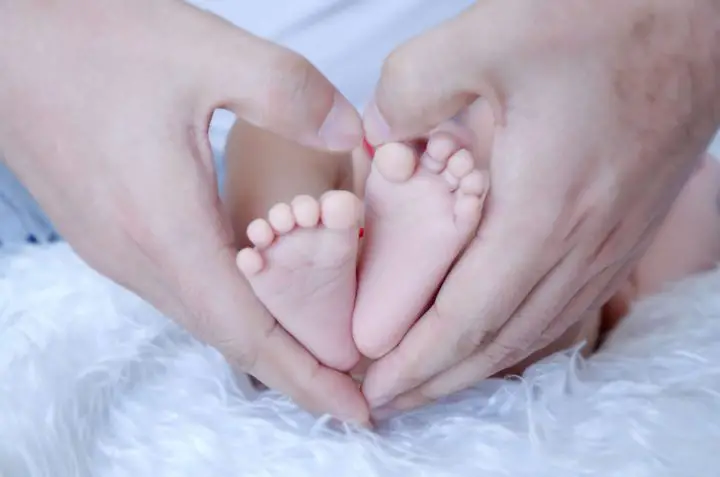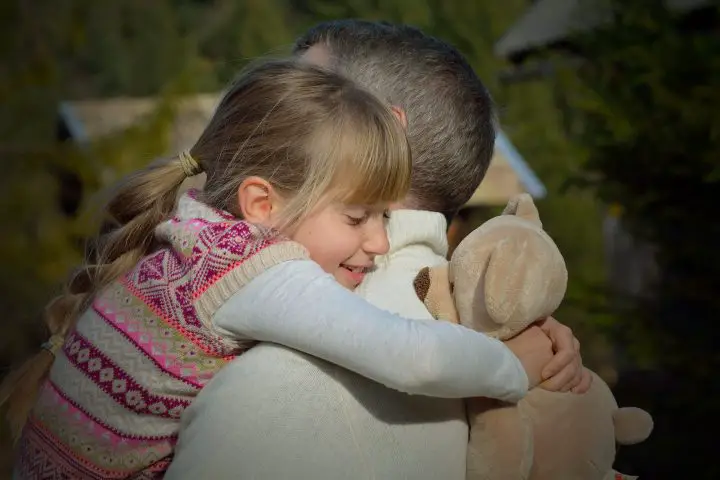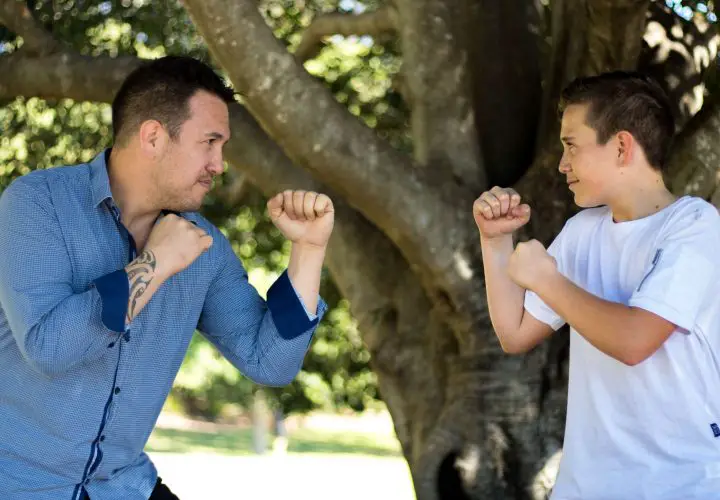Biologically, just about anyone can be a father, but fatherhood is a different story. It’s a tale of epic proportions, a multitude of sacrifices, and at the core of it all, love.
Can you ever be fully prepared for fatherhood? No, but you can prepare for the challenge of fatherhood. Being a father is a life-long commitment. And everything that you do with and for your children changes their trajectory in life.
Even more important is that your role as a father will impact your child’s psychological, physical and emotional well-being. The research around the negative effects of fathering are startling, but every day we get to redress this with new choices. In this article, I’ll broaden your idea of fatherhood so that you can gain a greater understanding of what’s ahead of you. Whether you’re thinking about becoming a dad, or have children coming out of their teenage years, there’s something for everyone to learn about being a father.
You Don’t Need to Have All the Answers
Most fledgling dads are nervous about going into fatherhood. And how can we blame them – it’s daunting suddenly being responsible for someone else’s life. If men and women were required to perform an exam before they were able to become parents, our world population would be around 7.7 million, not billions.

Parenting is not about having all the answers. It’s about immersing yourself in the experience and then learning about solutions to the challenges that you, as a father, uniquely face with your children. Here are three things to remember before you start.
1. Your Child is Unique
Yes, your child is special, but more than special, they’re individual. This is your opportunity to learn all about them, their cues and everything else that they do differently.
2. Parenting is a Team Sport
Don’t try and do everything on your own. And don’t let your wife/spouse try to do everything on their own. Share responsibilities. Remember, one day, when this child has grown up, you and your wife will be spending a lot of time together, alone. Make sure that you maintain this relationship at all times.
3. It’s Okay to Make Mistakes
Most of the time you will not get it right. Sometimes you may even hurt your child with your ignorance, negligence or downright foolishness. Take responsibility for your actions, learn from your mistakes and move on. Parenting is not a 100-meter Olympic sprint. It consists of years and years of training and running multiple marathons.
The Phases of Fatherhood
Prepare to change as you go on this journey into being a dad. Also, understand that what your child needs today, may not be what they need tomorrow. Every phase of a child’s growth requires a father to bring something new to the table. I’ll share some insight into each of these phases, looking at what you can start with. However, each child is unique and will need an approach that works specifically for them.
Phase 1: Infancy
Your child is tiny. No, wait, tiny doesn’t even begin to describe this fragile human being in front of you. You may be worried that your heavy hands and clumsiness will hurt your child. Don’t though. It’s critical that you hold your child right from the beginning. Connect with them through touch and one-on-one time. Speak to them and learn about them. Speak to your dad and other dads who have gone through this phase before. Ask them, “What are the three things you wish you had known when you were in my position?”
Be prepared to lose sleep, be grumpy and lose a bit of mental agility over this time. Be patient with your significant other as well. There will be time to get back into the rhythm of your life in a few months or a few years. For now, it’s not about you. It’s all about them.

Phase 2: Toddlerhood
Now it’s time to roll up your sleeves and head to the floor. Toddlers are notorious for their curiosity. And why not? They’ve recently discovered that they have a body and a voice, hands, and feet. Be present with your child, but at their eye level. Spend time with them on the floor, playing with them and sharing their experiences. Speak to them and ask them questions about what they’re doing.
This is an incredibly demanding time for parents because your child will have a lot of energy. You can’t physically play all the time. Neither can you be with them every hour of the day. Speak to your partner and come to an agreement about when each of you will spend time with your child. When it’s your turn, immerse yourself completely in your child’s life. Feed him, bath him, change his diaper and read to him. Give him the kind of attention that you would give to your television or your smartphone – uninterrupted, quality time. In the years to come both of you will hold these memories in high regard.
Phase 3: Childhood
This is perhaps the greatest time for teaching in a child’s life. Not the kind of teaching that happens in school, but the kind that happens from father-to-son, and father-to-daughter. Prepare to butt heads and ideas. Expect a lot of questions from your children. In childhood, children will push boundaries and look for answers. Recent brain research has shown that between the ages of 1-3 years, a child’s most important development happens.
This is a time when you need to both support them and challenge them. You’re going to have to teach them the value of routines, and how to exercise choices in their lives. Prepare for many emotions. This is a difficult time for children because all their fantasies about the world being just about them are uprooted, crushed and tossed away. This is where they begin to understand the way the world works. This is a time where you can really help them hone their understanding, not take things that happen personally.
Helping your children to understand their experiences in childhood is critical. Every moment in childhood is a teachable moment.

Phase 4: Teen Years
Just because they might not want to be around you as much as they once did, doesn’t mean they don’t need you. Teenagers need their fathers the most. It’s a confusing time. They’re establishing a deeper level of independence and making the kind of mistakes that have big consequences.
This is a time in your life when you will need to learn a new level of patience for your children. Hear them out. Breathe. Relax on the unimportant rules when they challenge them. Learn to negotiate with them and compromise where you can. Give them space and time, but always let them know that you care, you’re interested and you accept them for who they are becoming.
The great thing about teenagers is that they can now keep up with you. Join a gym together or take up a hobby that you’re both interested in. It’ll amaze you as to what kind of conversations you’ll have with your teenager during these weekly moments. Be open. Speak to them and remember that the best thing you can do for your teen is to let them know that you’re human.

Phase 5: Manhood/Womanhood
When do you stop being a father? Never. Your dad and his dad, and five generations of dads down the line are still rooted in fatherhood. Keep the tradition alive. Your daughter or your son is about to step into your shoes. They’re going to have their own family, their own set of problems and the advice that they get from you could change the way that they experience their lives.
This is the phase where you begin to understand the power of family and how important it is to be a part of a support system. Give your child the support they need. When they start to have children of their own, offer to look after the kids from time to time, so that your child can have a rest. Don’t question their parenting style – it might be different to yours. Let them figure it out until they come to you for advice.
There is lots of research around the important role fathers play.
There Will be Good Times and Tough Times
There are many things that are great about being a dad. Your kids will marvel at your knowledge, your strength, your skills, and your wisdom. They will make you feel young again and remind you what it means to laugh, imagine and play.
However, there will also be challenges. There are advantages and disadvantages of (especially a big) family. Children can be expensive and you will need to earn a decent income to give them what they need. There will be times when they won’t appreciate what you do for them. There will be moments where you have to sacrifice your friendships and relationships for them. You may even struggle to see yourself changing in the process. In times like these, remember why you wanted to be a father. Remember the good times – they will return.
During especially challenging times, find help. Join a support group and find advice from resources you trust. This is a great time to sit down with your own father and ask him how he got through the tough times. Or choose one of 100+ hobbies for dads.

A Curse or a Blessing
Fatherhood is the ultimate blessing, at least that’s how I see it. And if you happened to become a father accidentally, just think about the quote:
“Things turn out best for the people who make the best of the way things turn out” – John Wooden, former UCLA basketball coach
Use fatherhood as an opportunity to grow: letting your child grow and letting yourself grow, too. We’re all on the path of continuous improvement instead of being perfect.
The question is, after reading this far, are you up for the challenge? Are you ready to grow?
You don’t have to have all the answers.
You just need to make two promises – that you will love your children without conditions…and do whatever it takes to raise them with values.

